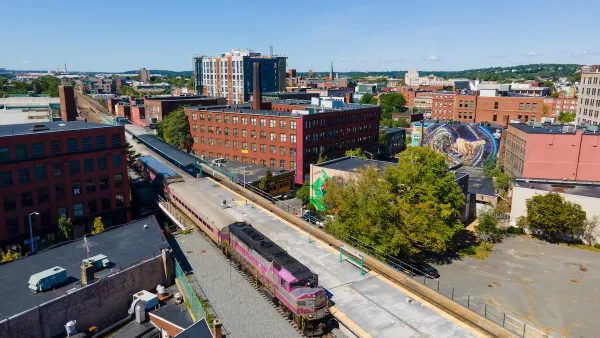Four states now have laws in place that prevent cities and counties from creating or continuing guaranteed income programs, and several more have tried or are trying.

“After years of momentum behind guaranteed income programs that disburse no-strings-attached cash, the backlash has arrived in force,” writes Sarah Holder in an article for Bloomberg.
More than 100 pilots have been launched in cities and counties across the United States since 2018. But this legislative session, lawmakers in South Dakota, Idaho, and Iowa passed legislation barring state and local governments from making guaranteed income payments. At least another seven other states have tried or are trying: Arkansas successfully banned localities from creating universal basic incomes in 2023; Arizona, Wisconsin, and Mississippi tried to pass similar legislation this year but failed; West Virginia has introduced a bill this year that has not yet come up for vote. Texas Attorney General Ken Paxon has also sued Harris County, which includes Houson, over its just-launched pilot, Holder reports.
Guaranteed income programs “distribute money at regular intervals to specific populations in need, like low-income residents, or new mothers or homeless youth. Unlike other social safety net programs, they don’t typically ask recipients to meet any conditions in exchange for the money or use it in particular ways. They are also said to be more efficient than other government programs saddled with red tape and administrative burdens,” writes Holder. Universal basic income follows the same principles, but all residents within a community, not just select populations, receive a set payment.
Opponents of these programs say they will deter people from working and say they are merely efforts to expand welfare. However, Holder reports increased full-time employment rates among participants in a guaranteed income program in Stockton, California, as well as reported improvements in participants’ physical and mental health in other pilots. Programs across the country, including a recent pilot in Austin, Texas, are also reporting increased housing stability among low-income recipients, who spent the majority of their payments on housing and other essentials like food.
FULL STORY: States Push Back Against Guaranteed Income With New Bans

Planetizen Federal Action Tracker
A weekly monitor of how Trump’s orders and actions are impacting planners and planning in America.

San Francisco's School District Spent $105M To Build Affordable Housing for Teachers — And That's Just the Beginning
SFUSD joins a growing list of school districts using their land holdings to address housing affordability challenges faced by their own employees.

The Tiny, Adorable $7,000 Car Turning Japan Onto EVs
The single seat Mibot charges from a regular plug as quickly as an iPad, and is about half the price of an average EV.

Seattle's Plan for Adopting Driverless Cars
Equity, safety, accessibility and affordability are front of mind as the city prepares for robotaxis and other autonomous vehicles.

As Trump Phases Out FEMA, Is It Time to Flee the Floodplains?
With less federal funding available for disaster relief efforts, the need to relocate at-risk communities is more urgent than ever.

With Protected Lanes, 460% More People Commute by Bike
For those needing more ammo, more data proving what we already knew is here.
Urban Design for Planners 1: Software Tools
This six-course series explores essential urban design concepts using open source software and equips planners with the tools they need to participate fully in the urban design process.
Planning for Universal Design
Learn the tools for implementing Universal Design in planning regulations.
Smith Gee Studio
City of Charlotte
City of Camden Redevelopment Agency
City of Astoria
Transportation Research & Education Center (TREC) at Portland State University
US High Speed Rail Association
City of Camden Redevelopment Agency
Municipality of Princeton (NJ)





























